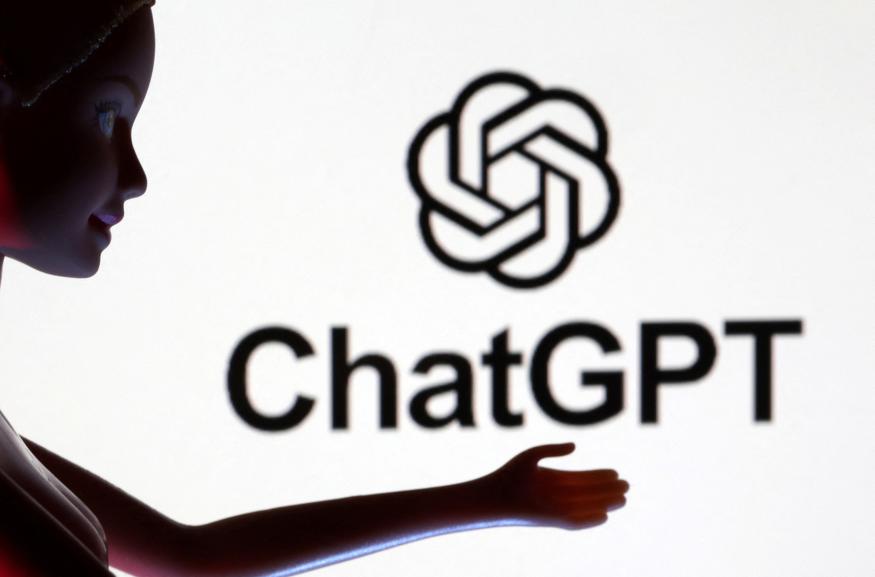FTC Probe Into OpenAI And ChatGPT: Implications For AI Development And Regulation

Table of Contents
Data Privacy Concerns and ChatGPT
The FTC's investigation likely centers on how OpenAI collects, uses, and protects user data fed into ChatGPT. This includes scrutinizing OpenAI's compliance with existing data privacy regulations like the General Data Protection Regulation (GDPR) in Europe and the California Consumer Privacy Act (CCPA) in the United States. Concerns exist regarding:
- The potential misuse of personal information: User inputs, including sensitive personal details inadvertently shared during conversations, could be vulnerable to misuse.
- Data security and breaches: The sheer volume of data processed by ChatGPT necessitates robust security measures to prevent unauthorized access and data breaches. A breach could have significant consequences for user privacy and OpenAI's reputation.
- Transparency and user consent: The FTC will likely examine whether OpenAI adequately informs users about data collection practices and obtains proper consent.
Specific privacy issues under scrutiny may include:
- Inadequate data minimization practices.
- Lack of transparency regarding data retention policies.
- Insufficient security measures to protect against data breaches.
- Failure to comply with user requests to access, delete, or correct their data.
Algorithmic Bias and Fairness in AI Models
Another key area of the FTC's investigation is algorithmic bias within ChatGPT. Large language models (LLMs) like ChatGPT are trained on massive datasets, and these datasets may reflect and amplify existing societal biases. This can lead to:
- Discriminatory outcomes: ChatGPT's responses may exhibit bias against certain demographics, leading to unfair or discriminatory treatment of specific user groups.
- Reinforcement of harmful stereotypes: The AI could perpetuate and amplify harmful stereotypes present in the training data.
- Lack of fairness and equity: The inherent biases could lead to unequal opportunities or outcomes for certain individuals or communities.
The FTC's examination will likely focus on:
- Identifying and quantifying the extent of bias in ChatGPT's outputs.
- Evaluating OpenAI's efforts to mitigate bias in its training data and algorithms.
- Assessing the impact of bias on different user groups.
Examples of potential bias include skewed responses based on gender, race, religion, or other protected characteristics. The societal consequences of such biases can be severe, impacting access to opportunities and perpetuating social inequalities.
Liability and Accountability for AI-Generated Content
A critical challenge presented by ChatGPT and similar AI systems is determining liability for inaccurate, misleading, or harmful content generated by the model. The FTC's investigation will grapple with:
- Assigning responsibility: Is OpenAI liable for the outputs of its model? What about the users who interact with it? The legal landscape is currently unclear.
- Establishing legal frameworks: Existing legal frameworks may not adequately address the novel challenges presented by AI-generated content. New legal precedents and regulations will likely be needed.
- Defining responsible AI: The investigation will contribute to shaping discussions around responsible AI development and deployment, including accountability mechanisms.
Potential legal precedents and future developments might include:
- Stricter regulations on AI content generation and dissemination.
- New legal standards for AI transparency and explainability.
- Increased emphasis on human oversight and intervention in AI systems.
The Impact on AI Development and Innovation
The FTC's investigation could have significant implications for AI development and innovation. Increased regulatory scrutiny might:
- Slow down AI research and development: The fear of regulatory penalties could create a chilling effect, discouraging investment and innovation in the field.
- Raise the bar for responsible AI: It could lead to more rigorous standards for data privacy, algorithmic fairness, and safety, which, in the long run, could benefit the industry and society.
- Impact investment in the AI sector: Uncertainty about future regulations could affect investment decisions, potentially hindering growth in the AI sector.
The effects of regulation will likely vary across different stages of AI development, impacting everything from initial research to deployment and commercialization. Finding the right balance between fostering innovation and ensuring responsible AI development will be crucial.
Conclusion
The FTC's investigation into OpenAI and ChatGPT highlights the urgent need for a comprehensive approach to AI regulation. Addressing data privacy concerns, mitigating algorithmic bias, and establishing clear frameworks for liability are paramount for ensuring the responsible development and deployment of AI technologies. The implications of this investigation are far-reaching, affecting not only OpenAI but the entire AI industry. Understanding these implications is crucial for developers, policymakers, and the public alike. Stay informed about the evolving landscape of AI regulation and the ongoing discussions surrounding ChatGPT and responsible AI development.

Featured Posts
-
 Fremont Wolf River Firefighter Receives National Honor
May 12, 2025
Fremont Wolf River Firefighter Receives National Honor
May 12, 2025 -
 Neal Mc Clellands Ill House U Featuring Andrea Love A House Music Masterpiece
May 12, 2025
Neal Mc Clellands Ill House U Featuring Andrea Love A House Music Masterpiece
May 12, 2025 -
 Santorini Earthquake Activity Decreasing Tremors Uncertain Future
May 12, 2025
Santorini Earthquake Activity Decreasing Tremors Uncertain Future
May 12, 2025 -
 The Unsolved Alcatraz Escape A Deeper Look Following Trumps Reopening Call
May 12, 2025
The Unsolved Alcatraz Escape A Deeper Look Following Trumps Reopening Call
May 12, 2025 -
 Grand Slam Victory Jamaica Observers Coverage
May 12, 2025
Grand Slam Victory Jamaica Observers Coverage
May 12, 2025
Latest Posts
-
 Bay Area Weather Severe Thunderstorm Warning And Safety Tips
May 13, 2025
Bay Area Weather Severe Thunderstorm Warning And Safety Tips
May 13, 2025 -
 Recent Obituaries Local Residents Who Passed Away
May 13, 2025
Recent Obituaries Local Residents Who Passed Away
May 13, 2025 -
 Orange County Scores And Player Stats Thursday February 20th
May 13, 2025
Orange County Scores And Player Stats Thursday February 20th
May 13, 2025 -
 Portola Valley Welcomes New Greek Taverna
May 13, 2025
Portola Valley Welcomes New Greek Taverna
May 13, 2025 -
 New Greek Restaurant Taverna Opens In Portola Valley
May 13, 2025
New Greek Restaurant Taverna Opens In Portola Valley
May 13, 2025
